At 58 I often find myself as you do in middle age, reflecting on all manner of things. ‘What I could have done better’ is a big one but that list becomes infinite, so I soon move to some aspects of my past life that are more positive in nature!
For all the great opportunities and experiences I’ve had, I can honestly say the only one that has come naturally to me is Australian Rules Football. Soldier, aircraft mechanic, sales manager, husband, parent, all of these required conscious, applied effort. But footy?…piece of cake!
Growing up as one of nine children in the township of Kwinana in WA, we were very much an outdoor generation. Our community was a lower socio-economic one, populated with UK migrants and indigenous families. We had to create fun and a big part of that was with balls. Tennis balls, soccer balls, plastic footballs from the servo (which you had to take care kicking in bare feet because of the one end that had the thickened, hard and very painful join) and if we were lucky, a real leather footy.
I couldn’t get enough of that leather ‘Burley” football. Hours down the local Medina Oval with mates or my little brother in bare feet impersonating our heroes, most notably Malcolm Blight. When we weren’t down the oval it was our tiny back yard, slamming kicks at each other for marking practice or handballing into an empty garbage bin from a range of distances.
My first venture into a team was when I was five years old. The youngest team available to join was under 10’s so I was a veteran by the time I reached under 12’s! My younger brother Glen, three years younger than me, followed in my footsteps and played 150 x games by the time he was 15. Participation rates were high because there was simply no other distractions in those days. Winter meant footy and summer meant cricket.
From my earliest memories there was something special about being part of a team. It was so exciting to just get to training, let alone game day. I was chosen as captain most years in juniors and I don’t remember it coming with any pressure. I was a shy kid by nature and just wanted to do the best every week for the team. I enjoyed seeing others succeed much more than my own performance and that is something that has stayed with me both on the field and into my professional life.
Game day brought with it a couple of challenges in juniors. My dad, a former WW2 Sergeant Major, had an obsession with cleanliness having fought in fox holes for 4 x years and he would polish mine and my brother’s footy boots to within an inch of their lives. His rationale was that we should be grateful to have the Adidas we wore and preserving them with obsessive spit polishing was critical to their long life. This extreme level of maintenance also meant he didn’t have to cough up for another pair in a hurry.
The second challenge was our white footy shorts. Despite being poor, mum was proud of her capacity for housework. She was a domestic tyro, and her favourite appliance of choice was the washing machine which she enjoyed firing up at 6am most mornings. After years of using a 50’s style dual roller rinsing mechanism, mum was given a washing machine which had a spin dryer attached to the actual washer. It had a lid on it which when dropped gave out a cacophony not dissimilar to a Chinook helicopter! Accompanying the noise was the shaking that permeated through the fragile housing commission floorboards like an earthquake.
Mum’s diligence to her housework and in particular laundry, produced white footy shorts for my brother and I that acted like a prism! Phrases like, “Mate can you turn your shorts down a bit? I can’t see anything!” would come from opposition players and team mates alike. Glen spent his junior days captaining also and both of us had to lead our teams onto the field glistening with the most pristine of apparel. Looking back now we should have been more grateful but we were kids and didn’t like projecting ourselves from the team.
When I was 31, I was diagnosed with bi-polar disorder. It explained a lot and I’ve since tracked the origins of the behaviour changes to when I was 15. I had been a high achiever in primary school and in the first three years of high school but suddenly things went awry in my head. My concentration levels were poor and my love of learning and researching disappeared almost overnight.
I started getting into trouble with the law, drinking too much and smoking pot. At 16, I was unemployed and wandering aimlessly around the streets and shops with no one to turn to for help. My parents were older in a generational sense as they had taken on my younger brother and I unexpectedly much later in life. Their experiences and their resilience were remarkable but from another era, one not capable of dealing with teenage angst in the 70’s.
All I had was footy. Getting to training provided some respite from the internal pain I was feeling and for that 2 x hours I felt almost “free” in a sense. Joining the army at 17 in hindsight was exactly what I needed but it too came with significant challenges having contracted pneumonia at basic training and spending a couple of weeks in hospital. Thanks to a sliding doors meeting with a Vietnam Veteran Staff Sergeant who convinced me to persevere when I finally left hospital, I marched out, obtained a trade and completed six years military service.
Being a pacifist by nature, the army probably wasn’t going to be a long term venture! Having said that, it provided security and taught me some great values such as selflessness and discipline. I always felt that no matter how mischievous my behaviour would be at times, you just wouldn’t let your mates down. Like footy, there was that element of calm and safety amongst the team, especially when on exercises in the bush when you were removed from any modern luxuries and relied on team work and conversation to get by.
During my time in the army I was lucky to play in 3 x premiership teams. One with North Wagga and two with Coorparoo in Brisbane. It meant a two hour drive every weekend to get there from the army base, but I loved the players and it provided respite from the relative rigidity of military life. Due to my bi-polar and at times excessive extra-curricular indulgences, I could have easily lost the plot but again it was the natural desire to not want to let anyone down that got me through. I just loved the team environment, because I could hide amongst 40 x others and just express myself through the only thing that came naturally to me…..football.
After moving to Melbourne I was lucky enough to play in a VFA premiership with Werribee after six years of being at the club. I had just turned 30 and it was an extraordinary journey for everyone involved. My behaviour during those six years had been everything you would expect from someone with bi-polar, highly unpredictable. The highs provided heightened feelings such as being incredibly creative and promiscuous and the lows were devastating, leaving you uncommunicative and at times suicidal.
During a post season trip to Hawaii one year I binge drank for 24 hours and without sleep started a conversation with a woman from Germany, directly below me on the 8th floor of our hotel. Given it was 1989, I tried to conduct an intelligent, topical conversation regarding the Berlin Wall coming down, but to no avail. She soon determined the true condition of the imbecile above her and exited the balcony to head inside her apartment. I decided in my wisdom that I would finish the conversation and leapt over my balcony rail, dangled precariously from said rail, then dropped thankfully like a plumb bob landing on her balcony with my arms still upright. She and her mother who was also present, screamed and ordered me out through their front door. One inch out from that drunken, idiotic vertical drop and I was curtains.
Having been diagnosed correctly and subsequently medicated, I played for a few more years and began coaching. I had varying success starting in the bush and then with assistant roles at VFL level. During a four year stint with work in Hobart I coached a local team but in the second year I struggled and parted ways. I made mistakes, became adversarial and without the club’s support, just tried to do too much on my own in the end.
I was drinking again and very unhappy on the home front which exacerbated the pain. The whole experience put a foul taste in my mouth and put me off footy for the first time in my life. Physically diagnosed by my GP as a ‘walking time bomb’ and a high functioning alcoholic (which was an oxymoron given the lack of functionality), it was clear that change was necessary.
Upon returning to Melbourne and with my marriage coming to an end, I received the news that an old friend in WA had taken his life. His name was Brett and he was one of the funniest, creative and intelligent guys I’d ever met. Like many others I met at the funeral, little was known about Brett’s depression but it was clear that alcohol had played a big part in his despair. The funeral and wake in Fremantle had a cathartic effect on me, to the point that I committed to sobriety immediately, as well as running the Melbourne Marathon a year later in Brett’s honour.
The marathon was horrific. A warm day with a strong northerly wind didn’t help and I came into the MCG not far ahead of the volunteers picking up witches hats along the route. I did however finish despite a poor preparation and the run had the desired effect. The decades of drinking and smoking had been purged with every agonising step over the last 10km and I had a strange masochistic sense that this was the punishment I deserved.
It was 8 x years after the Tassie experience that I was back in Melbourne and settled with my new partner Lynda in Chadstone. Returning from a January Sunday morning jog I came across a group of footballers at my local oval obviously having a pre-season run. Out of curiosity I stopped and the President came over for a chat. I recognised that the players were disabled on a variety of levels, both physically and mentally.
I offered up my services and started taking the training over the next couple of weeks but then the coach was banned by the league for misbehaviour and I was thrown the keys. It would be the start of what is now a significant chapter in my life.
Over my career I just assumed the great game of Aussie Rules was the people’s game and therefore no one would be exempt from experiencing its great qualities and values. This hasn’t always been the case. People with intellectual disabilities have always found it difficult to experience the thrill of the sport at mainstream clubs, often demoted to roles such as running water and assisting with property.
In 1991, what started as a couple of clinics run by the Hawthorn Football Club, has now become FIDA (Football Integration Development Association). With the AFL taking over the administration in 2015, there are now 6 x competitions, consisting of 28 x clubs and 800 players.
The players I coached at the Mt Waverley Demons had a range of disabilities from high needs autism to ADD to OCD to bi-polar to clinical depression and learning disabilities. The players could make me cry as well as laugh my backside off! Some were breathtaking in their courage to the point where I was genuinely concerned. One of our female members ran with the flight of the ball into a marking contest at Coburg one day with the vigour and intent of Johnathan Brown and met a male player coming the other way who was well over 100kg. Upon the collision, I sprinted out to her thinking we have our first fatality but she was up and jogging off before I could get there.
A player I will name as Kenny, is a high needs autistic man in his 30’s. His father is an amazing carer who has taken Kenny with him all around the world on holidays and it’s something Kenny treasures and often loves to re-live. Kenny would play in our lower division side which is less intense and has a focus purely on participation. He is a lovely, affectionate guy but when you least expected it, he would ‘whack’ an opponent or even his own team mate! One way to appease this and head it off at the pass was to give Kenny an opportunity to kick a goal. This would happen often at games where players who were incapable of getting the ball were handed the opportunity to experience a goal. It was always accompanied by uproarious cheers from the sideline and exultation with their team mates.
The back stories from some players were sometimes confronting. I’ve heard stories of such wretched childhoods from these boys and girls that it’s difficult to comprehend we are a civilized society. There were some players that were managed by the DHHS (Department of Human Services) whose staff I had a great relationship with. One of these boys opened up to me after building trust over a couple of years and described how his parents bullied and abused him because of his disability to the point where he was thrown through a door by his father. It was at this point the DHHS stepped in and made him a ward of state. I’m pleased to say this brave kid made the Victorian FIDA Representative side and it’s fair to say his love of sport has been his saviour.
Unfortunately we had instances in the previous couple of years to me joining, where social media and general misbehaviour had inflamed relatively minor disagreements amongst certain parties, so we introduced a code of conduct that each player had to sign. This included no alcohol which initially didn’t go down too well. After I explained that I hadn’t had a drink for 8 x years and that they as individuals were far more interesting sober, they embraced it and we had a much more balanced culture as a result.
My three years coaching in FIDA opened me up and made me quite vulnerable at times. The unpredictability of some of the players had you on your toes and my level of patience could be tested. We were blessed to have fantastic, hard working parents and I was able to rope in some generous sponsors so we could kit out the players and make them feel like professionals.
We also had the support of the local Toyota dealership who through the Good for Footy campaign, gave us an AFL player one training night and then the crème de la crème of privileges for the club, participating on the 2016 AFL Grand Final march!
We arranged to meet in Spring St an hour before the march, all the players along with their relatives and carers. The march began and we were to follow the last car which had Western Bulldogs players riding in it. Just in front of us was a ute with big boxes of footy ‘squeeze balls’ which we could give to the crowd, however these were to be rationed out over the 2 km journey to the MCG. The balls were to be transferred periodically by AFL staff into the trays attached to tricycles ridden by other AFL staff. My team could then take the balls from the tricycles and distribute accordingly.
As we turned into Wellington Parade, what had been a relatively uneventful and quiet last hour in preparation, turned into 200,000 delirious footy fans screaming at the top of their lungs. One of my players got over excited and grabbed a box of squeeze balls from the back of the ute, lifted the box onto his shoulder and ran at the crowd raining plastic footys at whoever was in the general direction! Myself and another AFL official had to restrain him and I hurriedly explained to him the proper procedure, but I was looking into some seriously manic eyes.
No harm done. An experience like no other but it didn’t finish there. When we reached the ‘G’ we inadvertently approached former Hawthorn champion, Shane Crawford standing alone next to a fence. Given we had a lot of Hawthorn supporters in the team, Crawford was about to be rushed by a group of over excited, hyper ventilating FIDA players, so I jogged ahead and said, “Hi Shane. You’re about to meet the Mt Waverley Demons who are an intellectually disabled footy team…in fact here they are now!”
At that point a dozen players all talking over themselves thrust pens, paper, jumpers, footballs and their own body parts at Crawford to sign. Crawford quickly summed up the situation, was genuinely chuffed with the love and graciously signed everything, whilst answering the plethora of questions coming from the adoring pack.
We managed to play in 3 x grand finals in my time at the club but never won one. Normally that would have stung pretty hard for me as I had lost a grand final coaching previously, but the players taught me to move on quickly and not be so serious. As a coach you desperately want success for your players, but when after a grand final loss your players turn to you and say “what’s next?”, it’s probably time to move on. Working with people with a disability always brings reality checks and steadfastly puts things into perspective.
Coaching in FIDA resurrected my love for the game. It highlighted just how beneficial footy and team sport can be, particularly for those with a disability. When I look back on living with bi-polar disorder and the self-destructive nature it generates, it was footy that saved me. No matter how low I got and when that “fog” utterly consumed me, I always made it to training. I could hide amongst the group, train my backside off, which I saw as punishment for my mood, and go home.
When my players would turn up for training, there were mixed emotions. Most of the able bodied players weren’t overly enthusiastic whereas the high needs players just wanted to have fun. By the end of training, they were an entirely different group, exhilarated and happy. Combining that sense of selflessness with some old fashion exercise into the group was the key to getting the best out of them. People with a disability are ostracised enough in their everyday, so the more you can help them experience the security and benefits of being in a team the better.
My late sister-in-law Desma, was born with an intellectual disability and sadly passed away a couple of years ago in her 50’s. She was a determined, stubborn, creative and very funny individual who inspired me at all times. When I gave up corporate life not long after Desma’s passing, I committed to getting involved in supporting those with a disability once more.
I started by working part time for a community in Melbourne’s East driving a bus picking up clients at 7am and taking them to their base camp, returning at 3pm to take them home. As one of my colleagues said, “it was like driving 10 x of your best mates around.” As many of my clients were in their 40’s and up to their 60’s in age, I would often wipe a tear away when I saw the affection shown between the clients and their parents who were in their 70’s and 80’s. These were people who, way before NDIS arrived, had cared for their child all their lives unconditionally. It was beautiful and it got me every time.
So now I’m working as a Mental Health Support Worker and loving it. No day is the same and the work is as important as it is challenging. Does it come as naturally as footy did? Probably not, but I doubt anything ever will. What I do know is, as a purpose in life, working with people with a disability feels right. I hope with experience and hard work it can become as natural as kicking goals barefoot or handballing into a garbage bin!
I like one of Neale Daniher’s favourite quotes, ‘choose your attitude’. It’s sound advice from one of the best natural footballers and most selfless people of all time. People with a disability have many varied challenges, but with a little support, encouragement and purpose, much can be achieved. A team environment that harnesses those values can assist those with a disability to choose an attitude that serves them and their team mates best.
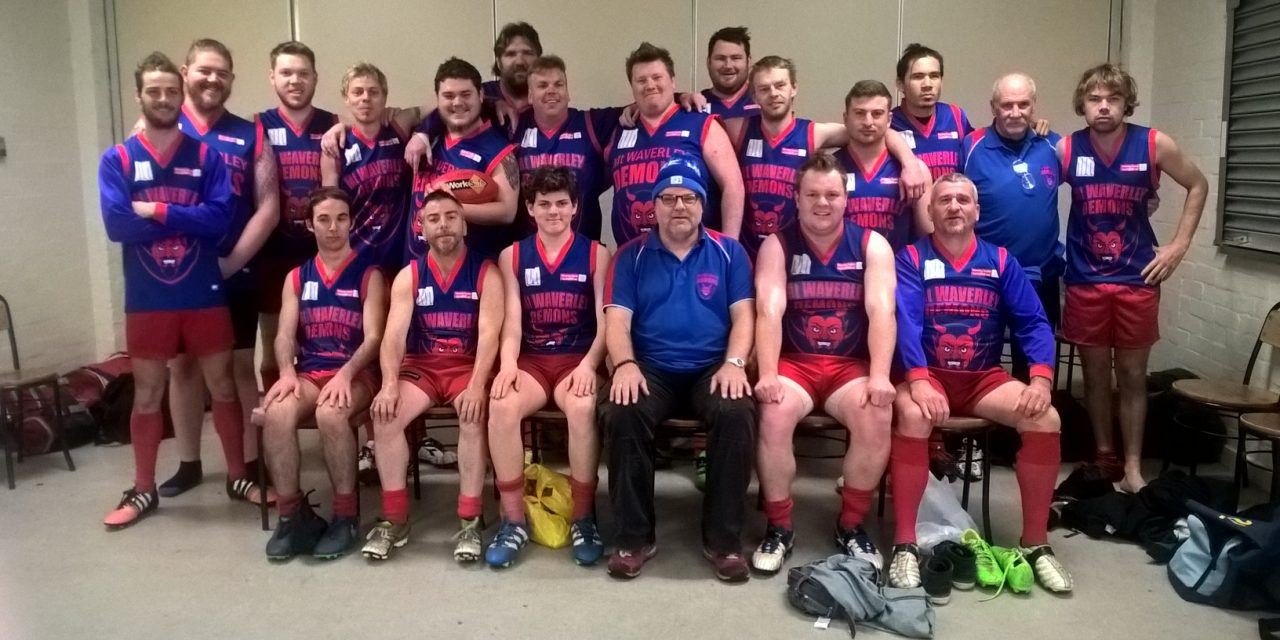
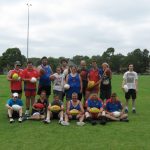

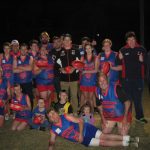
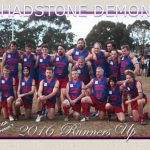
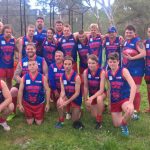
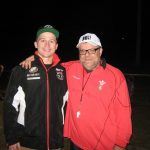
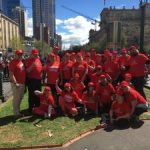
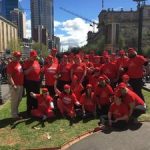
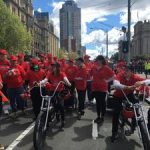
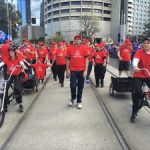
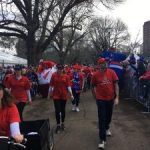
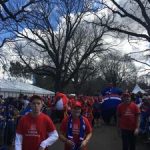

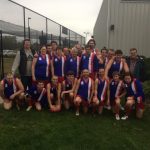
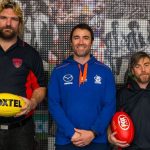
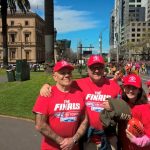
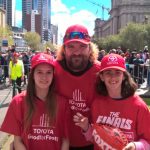
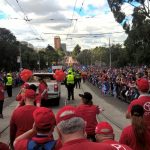
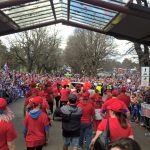
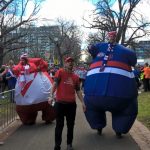
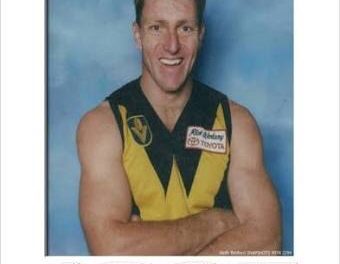

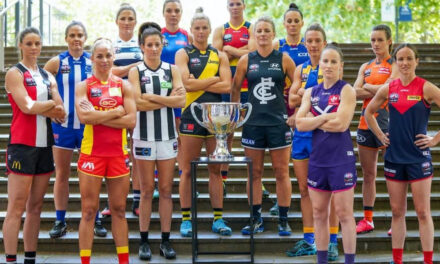
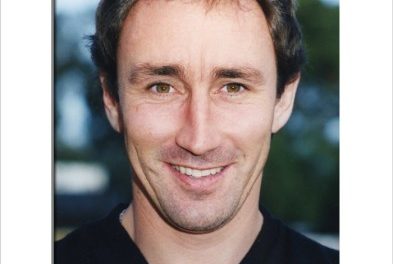
Great work Senator. Heart felt stuff.
thanks for dropping in Senator appreciate it
Awesome Willow , great work!!
thanks for dropping in Wendy cheers
Power to your arm “Willo” a wonderful story and all the very best for now and the future
Many thanks for dropping in Alan appreciate it
Brilliant Willo
thanks heaps Phil appreciate it mate
Brilliant as always mate
thanks heaps Walks appreciate it
Love it Willo.
Thanks for dropping in Chunk appreciate it
Great reading Willow.
thanks heaps Shark appreciate it
You are making a difference Willow. Keep up the great work
thanks heaps Dennis appreciate it. Pls keep dropping in and we hope to see you next year
You are doing a wonderful thing Willow. Proud of you
Goodonya’ Willow. Love your work, words and heart.
thanks heaps Karl pls keep dropping in appreciate it
Great reading Ian
thanks heaps Jamie appreciate it
Add me please mate
thanks heaps Turtle appreciate it
thanks heaps Tim appreciate it
Yes please.
thanks heaps Gretch appreciate it
Great reading Willow!
thanks heaps Sue appreciate it
Awesome willow
thanks heaps Franky appreciate it mate
I would love to read your Blog!!!!!!!!!!!!!!!
Thanks heaps Madlen appreciate it x